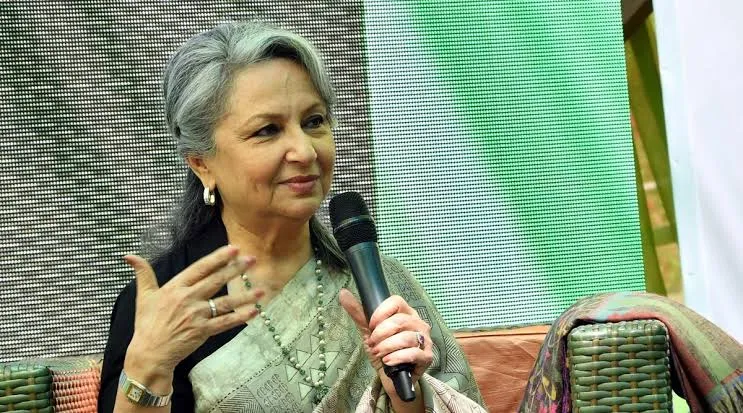More than 20 people were killed in an Israeli airstrike on a predominantly Christian town in northern Lebanon on Monday, further intensifying the ongoing conflict between Israel and Hezbollah. The airstrike targeted the village of Aitou, located near the northern city of Tripoli. This area, far removed from Hezbollah’s usual strongholds in the south, was considered relatively safe from the conflict until now. The Lebanese Red Cross confirmed the death toll at 21 people, with many more injured.
Footage from the scene broadcast by Lebanese television showed widespread devastation, including a heavily damaged building, wrecked cars, and bodies lying on the streets as rescue workers and civilians frantically searched through the rubble. Joseph Trad, Aitou’s mayor, told reporters that the building targeted in the attack had been rented to families displaced by the war.
Hezbollah Responds with Rocket Fire on Tel Aviv
In response to the airstrike on Aitou, Hezbollah launched a salvo of rockets at Tel Aviv, Israel’s commercial and diplomatic hub. At least three rockets were fired, triggering air raid sirens across central and northern Israel. Fortunately, Israel’s air defense systems intercepted the rockets, preventing further casualties. The exchange marks a significant escalation in the multifront conflict Israel is currently fighting against both Hezbollah in Lebanon and Hamas in Gaza.
On Sunday, Hezbollah also carried out a drone attack on an Israeli military base near Binyamina, killing four soldiers and severely wounding seven others. Israel’s Defense Minister Yoav Gallant vowed a “forceful response” to the attack, reinforcing Israel’s determination to continue its military campaign against Hezbollah.
Hospitals and Shelters in Gaza Under Attack
While Lebanon reels from the airstrike on Aitou, the situation in Gaza remains dire as Israeli airstrikes continue to claim lives. In the past 24 hours, Israeli airstrikes have targeted several civilian locations, resulting in significant casualties. On Monday, four people were killed in a bombing at the courtyard of al-Aqsa Hospital in Deir al-Balah, in central Gaza. The explosion triggered a massive fire, leaving 25 people with severe burns. The hospital, already overwhelmed by the influx of casualties from previous attacks, struggled to provide adequate care.
The same day, a nearby school that had been turned into a shelter for displaced families in Nuseirat refugee camp was bombed, killing at least 20 people. Earlier, five children were killed in a drone strike in the al-Shati camp in Gaza City. These attacks have drawn widespread condemnation from human rights organizations, which accuse Israel of targeting civilian infrastructure in its renewed offensive against Hamas.
Israel Faces International Criticism for UN Peacekeeper Casualties
In addition to the mounting civilian death toll, Israel is facing international backlash for incidents involving U.N. peacekeepers in Lebanon. Over the past two weeks, Israeli strikes have injured five members of the U.N. Interim Force in Lebanon (UNIFIL). In response, Italy, the UK, France, and Germany issued a joint statement condemning the attacks, calling them “unacceptable” and in violation of international law. Josep Borrell, the EU’s foreign policy chief, also criticized the attacks, stressing the importance of the peacekeepers’ mission in maintaining stability in the region.
Israeli Prime Minister Benjamin Netanyahu dismissed accusations that Israel had intentionally harmed peacekeepers. “These accusations are completely false,” Netanyahu said, explaining that Hezbollah had used UNIFIL positions as cover for attacks against Israeli forces. He urged U.N. peacekeepers to withdraw from combat zones close to the border for their own safety. However, UNIFIL’s chief, Jean-Pierre Lacroix, announced that the peacekeeping mission would remain in place despite Israeli calls to vacate the area.
Civilian Casualties and Fears of Starvation in Gaza
In Gaza, the situation continues to worsen as Israel intensifies its offensive in Jabaliya, a densely populated district of Gaza City. More than 400,000 people are trapped by the fighting, and the United Nations has warned of an imminent humanitarian catastrophe. Since early October, Israel has enforced a blockade, preventing food and supplies from entering northern Gaza. The U.N.’s World Food Programme has raised alarms about the growing risk of famine, as thousands of families face starvation.
The entire northern part of Gaza is now under evacuation orders, with the Israeli military instructing residents to leave their homes. However, many families, particularly those with elderly or disabled members, have been unable to flee due to the dangerous conditions. Rights groups, including B’Tselem, Gisha, Yesh Din, and Physicians for Human Rights, have urged the international community to intervene, warning that Israel’s actions could amount to war crimes.
The groups have condemned what they describe as a “starve or surrender” strategy, accusing Israel of seeking to forcibly displace the population of northern Gaza. “There are alarming signs that Israel is implementing a plan of forcible transfer in Jabaliya,” the organizations said in a joint statement, urging global leaders to prevent further atrocities.
Calls for a Ceasefire Grow Louder
Despite the escalating violence, there is growing international pressure for a ceasefire in both Lebanon and Gaza. Human rights groups, along with several nations, have called for an end to the conflict, which has now stretched on for weeks with no signs of resolution. However, Israeli officials, citing ongoing attacks by Hezbollah and Hamas, have made clear their intent to continue military operations.
Amid the bloodshed, diplomatic efforts to broker a ceasefire have faltered. According to reports in the Israeli media, the government has shifted its focus from peace talks to a strategy of gradual annexation of parts of Gaza. This move, coupled with the ongoing blockade and airstrikes, has raised fears of a prolonged conflict that will bring further suffering to civilians caught in the crossfire.






















